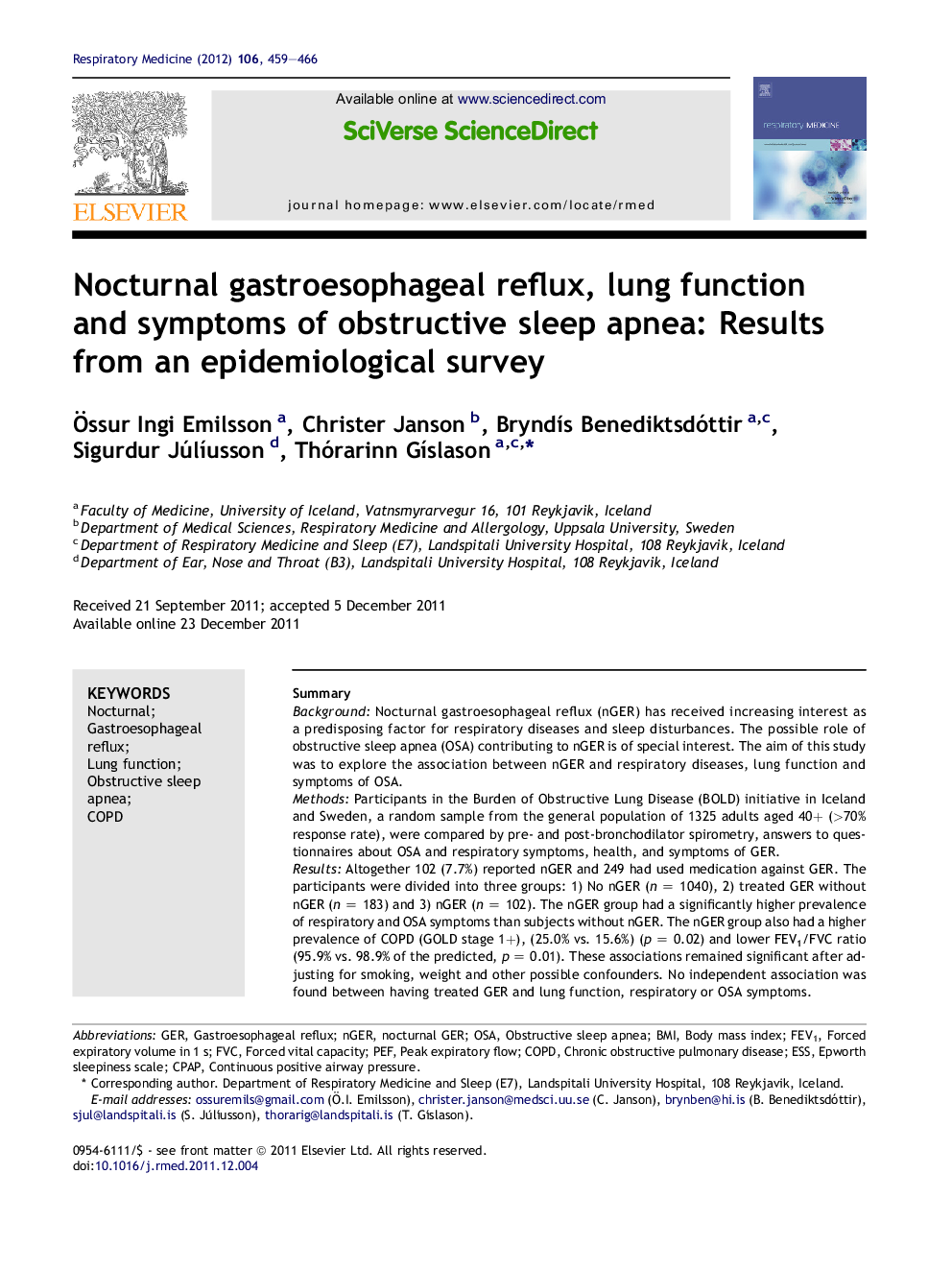| Article ID | Journal | Published Year | Pages | File Type |
|---|---|---|---|---|
| 4210548 | Respiratory Medicine | 2012 | 8 Pages |
SummaryBackgroundNocturnal gastroesophageal reflux (nGER) has received increasing interest as a predisposing factor for respiratory diseases and sleep disturbances. The possible role of obstructive sleep apnea (OSA) contributing to nGER is of special interest. The aim of this study was to explore the association between nGER and respiratory diseases, lung function and symptoms of OSA.MethodsParticipants in the Burden of Obstructive Lung Disease (BOLD) initiative in Iceland and Sweden, a random sample from the general population of 1325 adults aged 40+ (>70% response rate), were compared by pre- and post-bronchodilator spirometry, answers to questionnaires about OSA and respiratory symptoms, health, and symptoms of GER.ResultsAltogether 102 (7.7%) reported nGER and 249 had used medication against GER. The participants were divided into three groups: 1) No nGER (n = 1040), 2) treated GER without nGER (n = 183) and 3) nGER (n = 102). The nGER group had a significantly higher prevalence of respiratory and OSA symptoms than subjects without nGER. The nGER group also had a higher prevalence of COPD (GOLD stage 1+), (25.0% vs. 15.6%) (p = 0.02) and lower FEV1/FVC ratio (95.9% vs. 98.9% of the predicted, p = 0.01). These associations remained significant after adjusting for smoking, weight and other possible confounders. No independent association was found between having treated GER and lung function, respiratory or OSA symptoms.ConclusionsIn our cross-sectional epidemiological study, untreated nGER is strongly associated with both respiratory and OSA symptoms as well as airflow obstruction.
